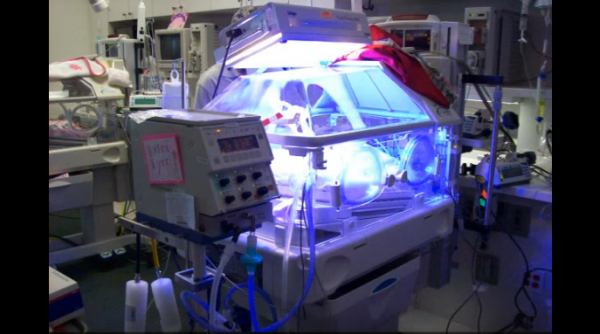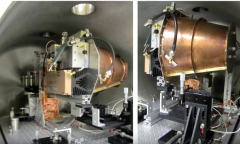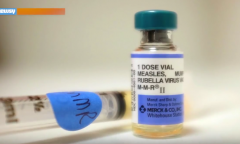By Prei Dy, | April 11, 2017

A team of Swiss researchers discovered a wireless camera system that could monitor premature newborn's vital signs without any discomfort. (YouTube)
Swiss researchers from the EPFL Polytechnical University in Lausanne and Swiss Center for Electronics and Microtechnology (CSEM) in Neuchatel revealed on Monday that they have developed a wireless camera system that could monitor the vital signs of premature babies.
Traditionally, skin sensors are used to check the vital signs but are relatively uncomfortable and highly inaccurate. In fact, they generate false alarms in up to 90 percent of cases.
Like Us on Facebook
"This is a source of discomfort for the babies, because we have to check them every time," Jean-Claude Fauchere from the University Hospital Zurich's neonatal clinic said.
"It's also a significant stress factor for nurses and a poor use of their time... it distracts them from managing real emergencies and can affect quality of care."
The hospital where Fauchere is working will start testing the new, contactless system. The harmless system would see premature babies in neonatal incubators monitored by highly sensitive cameras that could detect pulses and analyze skin color, which quickly changes if sudden changes in the heart beat occur. Breathing patterns of newborns will be monitored by measuring the movements of the thorax and shoulders. Infrared cameras will also take over the job during night time.
CSEM designed the optical system, picking the cameras that are the most sensitive in detecting even a subtle change in skin color. The EPFL, on the other hand, created the algorithms to process the data in real time.
"With our algorithms we can track this area when the person moves, isolate the skin pixels and use minor changes in their color to determine the pulse," Sibylle Fallet, a PhD student from EPFL, said, noting that the cameras produced "practically the same results" as traditional sensors.
The system could soon replace skin sensors after it has been tested and proven to work on premature newborns. Aside from cutting down the instance of false alarm triggers, it will also offer comfort for premature babies.
-
Use of Coronavirus Pandemic Drones Raises Privacy Concerns: Drones Spread Fear, Local Officials Say

-
Coronavirus Hampers The Delivery Of Lockheed Martin F-35 Stealth Fighters For 2020

-
Instagram Speeds Up Plans to Add Account Memorialization Feature Due to COVID-19 Deaths

-
NASA: Perseverance Plans to Bring 'Mars Rock' to Earth in 2031

-
600 Dead And 3,000 In The Hospital as Iranians Believed Drinking High-Concentrations of Alcohol Can Cure The Coronavirus

-
600 Dead And 3,000 In The Hospital as Iranians Believed Drinking High-Concentrations of Alcohol Can Cure The Coronavirus

-
COVID-19: Doctors, Nurses Use Virtual Reality to Learn New Skills in Treating Coronavirus Patients













